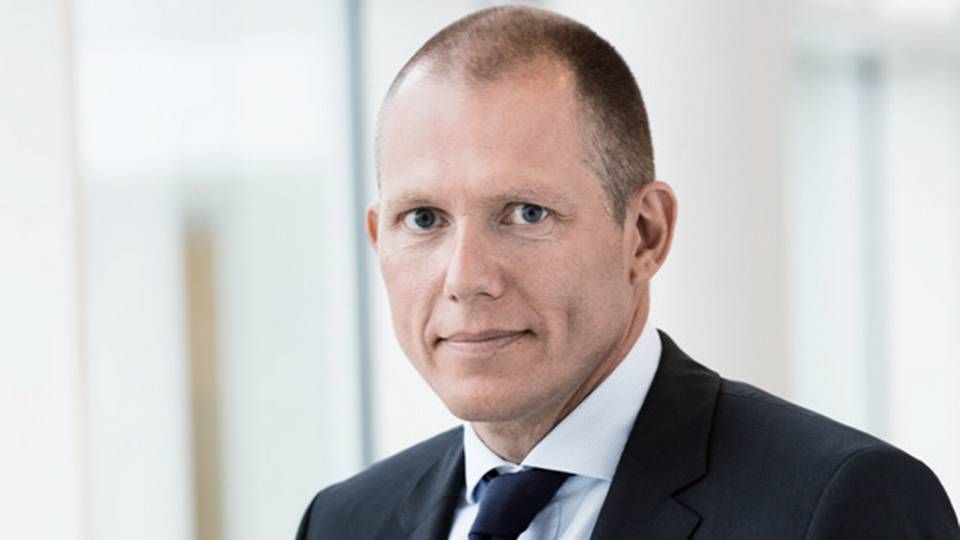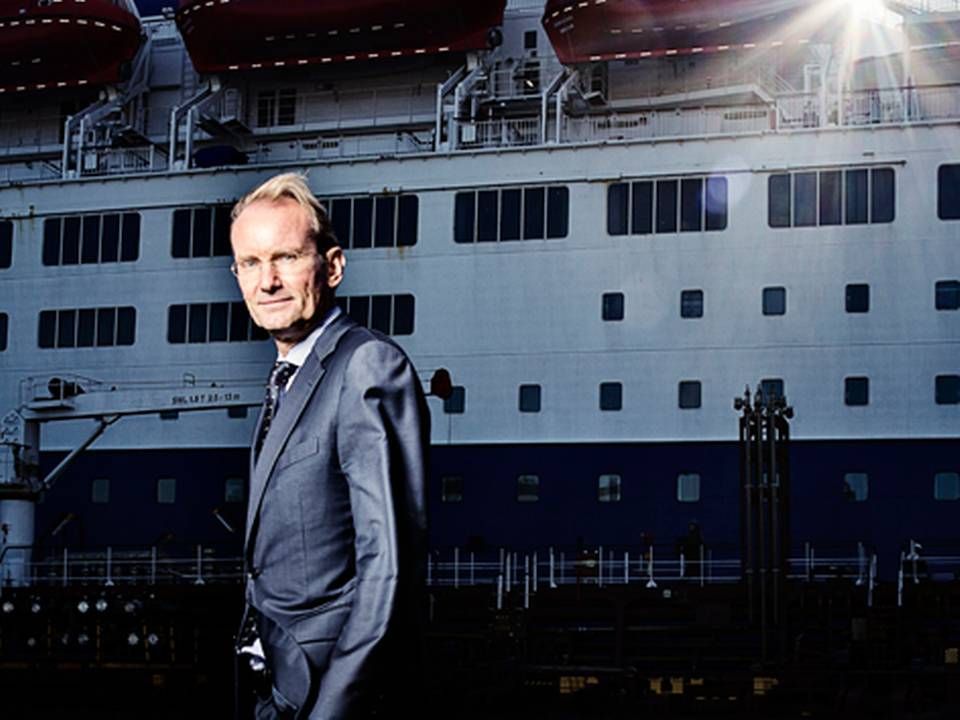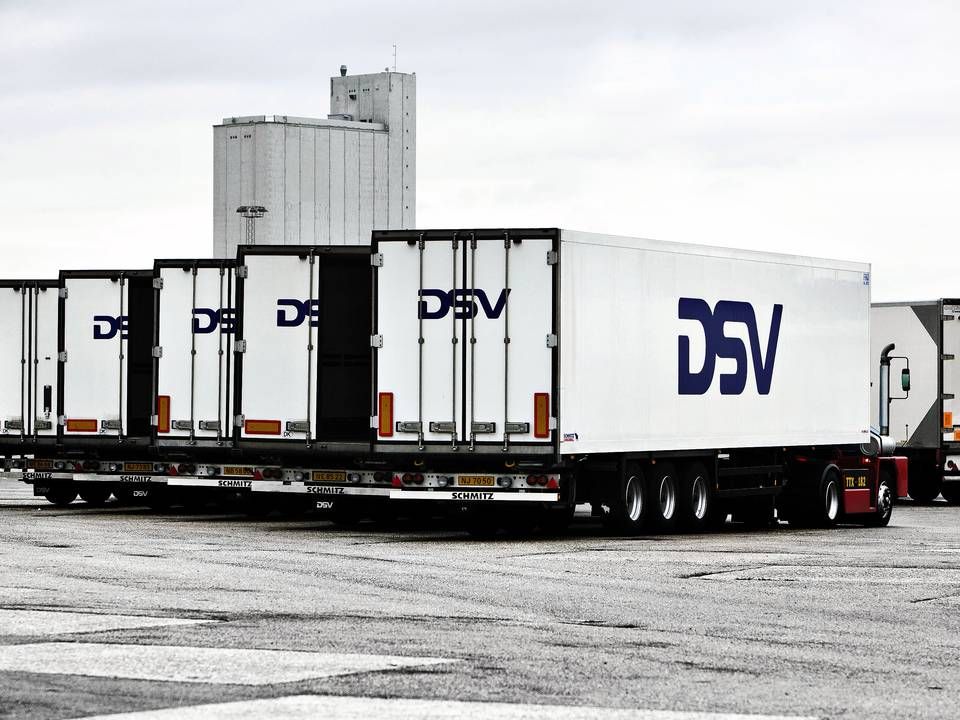DSV pads its wallet before making new purchases

While many of the executives at DSV are working hard to integrate the newly purchased UTI Worldwide, which doubled the number of employees at the group to 44,000 with just a signature earlier this year, the company's senior management is now slowly starting to look for new opportunities in acquisitions.
In just six months, CEO Jens Bjørn Andersen, expects that it will be time once more to look at new takeover possibilities, and small companies are not the obvious choices.
"Things have gone to show - right now we need to settle everything with UTI - that the major transactions we have carried out were the most successful, while some of the small acquisitions were the worst," he says.
It is no secret that the takeover of Norwegian Ontime Logistics in 2012 caused big problems for DSV.
Financially the impact was modest because Online - at the time of the acquisition - only had 220 employees and revenue worth USD 89 million. This is a leap from DSV's revenue of USD 7.5 billion last year.
Big transactions are a success
The transport behemoth had significantly better luck in swallowing the big transactions such as Frans Maas in 2006, and ABX Logistics in 2008, even though the takeover of the latter was closed two weeks before Lehman Brothers collapsed and the financial crisis stepped in.
ABX Logistics, which cost USD 857 million, contributed in making DSV what it is today.
The acquisition catapulted the transport giant into the Italian and German markets and now constitutes the DSV's most profitable division, Air & Sea.
"Looking at their track record, the major takeovers are the stories of success," says Casper Blom, DSV analyst at ABG Sundal Collier.
According to Jens Bjørn Andersen, the explanation is that it is often easier for employees at major companies to embrace the culture at DSV and the way of doing things. He explains that although DSV sees itself as very "entrepreneurial and flexible" compared to the biggest companies, it still entails a huge transition for a small company to join DSV, where regulations are tighter.
"It can be incredibly hard and so we need to be better at preparing the seller for how things are. Otherwise we risk losing some of what we buy."
Necessary to make big purchases
Jesper Langmack, investment director at Danish investment fund Danica Pension, points to the law of big numbers being a factor as well, when a company like DSV goes shopping.
Big acquisitions are simply necessary after DSV's market value passed USD 7 billion and the operating result passed USD 440 million.
"They need to go for bigger sizes for earnings to benefit," Langmack says.
Jens Bjørn Andersen stresses that although the company may start looking for new acquisition candidates as early as in December, before any synergies from UTI have even been generated, this does not mean that a transaction is right around the corner.
The process involved in the purchase of UTI Worldwide proves that the experience can be dragged out.
DSV contacted UTI for the first time in the summer of 2014, according to public documents from the US financial authorities, and the deal was not final until October 9, 2015. Along the way, DSV stopped negotiations after it was leaked to the public that the companies were discussing the matter.
Will not pay too much
Jens Bjørn Andersen explains that DSV has not made any binding decisions about what parts of the business that the company eventually wants to increase in size. But, he says, that investors do not have to fear DSV releasing a statement about the acquisitions of a company "for strategical reasons".
"That is always a sign that too much was paid and we will not pay too much," he says.
Apart from the easier integration of big companies compared to small ones, there are also parts of DSV's business that are easier to grow through acquisitions than others.
For instance, it is easier to integrate takeovers in DSV Air & Sea - which has the company's highest margins and contributed with two thirds of the operating income last year - than in DSV Road.
The latter has most of its business on European roads and requires infrastructure such as terminals, forklifts, track & trace systems, and scanners.
At DSV Air & Sea, most of this is outsourced because DSV mainly functions as the middleman and rarely sees the cargo being moved from A to B. This makes integration more smooth because it entails combining offices and moving new employees to the DSV IT systems.
"It's easy but it's more simple," says Jens Bjørn Andersen.
"But because the market is so fragmented, acquisitions might as well happen for Road in Europe as for international Air & Sea."
That an acquisition is still far off on the horizon, is due to pressure on the company's wallet in addition to the task of integrating UTI.
Saving up
After DSV bought UTI, the net debt at DSV grew to USD 1.36 billion, or about 2.5 times the operating result before interest, taxes, and debt amortizations (EBITDA).
The most aggressive competitors - such as XPO Logistics - run on twice this gearing (which they are punished for on the stock market), while competitors such as Kuehne + Nagel and Panalpina are debt-free.
DSV targeted a gearing earlier this year of 3, but after the purchase of UTI lowered this to 1-1.5 times the operating result.
"We chose to gear the company down a little," says Jens Bjørn Andersen.
"You can call it saving, so we have more net capital later."
A lower debt means that DSV can borrow more money if the right opportunity arises. Furthermore, the company has good access to the stock market.
"It is pretty easy to raise money because people believe in it when they make acquisitions," says Casper Blom from ABG Sundal Collier.
"If DSV purchases anything big, then you can pretty much calculate right away that things are going well."
DFDS CEO after Brexit: I'm looking after my business
Related articles
DFDS CEO after Brexit: I'm looking after my business
For subscribers
DSV lands agreement with Arab shipping group
For subscribers
DSV to lay off several thousand employees
For subscribers




















